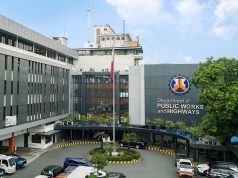Senate measure on vaccine buildout, manufacturing filed

A SENATOR has filed a bill that seeks to create an agency that will oversee vaccine development and manufacturing in the Philippines.
“Importation of vaccines may be cheaper and a relatively easier route in protecting public health,” Senator Richard J. Gordon said in the explanatory note of Senate Bill 2238.
“However, the long-term and more efficient policy framework, especially in cases when there is a pandemic, is to revitalize the country’s local vaccine capability,” he added.
Mr. Gordon said 80% of coronavirus vaccines have gone to rich countries, with only 2% going to poor ones under a global initiative for equal access. This left low to middle income countries such as the Philippines “at the tail end of the supply chain.”
He said the right way forward to protect and promote people’s right to health is by using science — investing in research and development and technology, and increasing the country’s expert pool and boosting local vaccine capability.
Mr. Gordon said the country’s vaccine manufacturing capability declined in the absence of training on updated vaccine production, outdated facilities and lack of government support.
The Philippines’ first vaccine laboratory was set up in the 19th century and initially produced smallpox vaccines, he said.
In 1950’s, the government produced with the help of the United Nations Children’s Emergency Fund vaccines against tetanus, rabies and tuberculosis, he added.
Under the bill, a Philippine Vaccine Authority will create a long-term vaccine development plan. It will also formulate a research agenda for vaccines and other substances from a biological source.
The agency will also develop and prescribe policies for vaccines and substance research and manufacturing, and facilitate transfer from technology owners and research institutions to local institutions and manufacturers.
It will also execute contracts and agreements, among other functions.
The agency will be chaired by the Health secretary. It will have the secretaries of Science and Technology, Trade and Defense departments as members.
The agency will provide human resource development for various fields, provide funds for scholarships, study grants, training programs and short courses, support annual conventions and conferences and professionals and engage with returning Filipino scientists and foreign experts.
It will also support Filipino vaccine manufacturers by giving them a tax holiday for the first five years covering income, import duties on equipment and modular units and export sales of locally made vaccines.
The Health department and local government units will also buy vaccines from Filipino manufacturers first for their immunizations programs.
The measure initially allots P2 billion as a vaccine development fund under the national budget. — Vann Marlo M. Villegas



